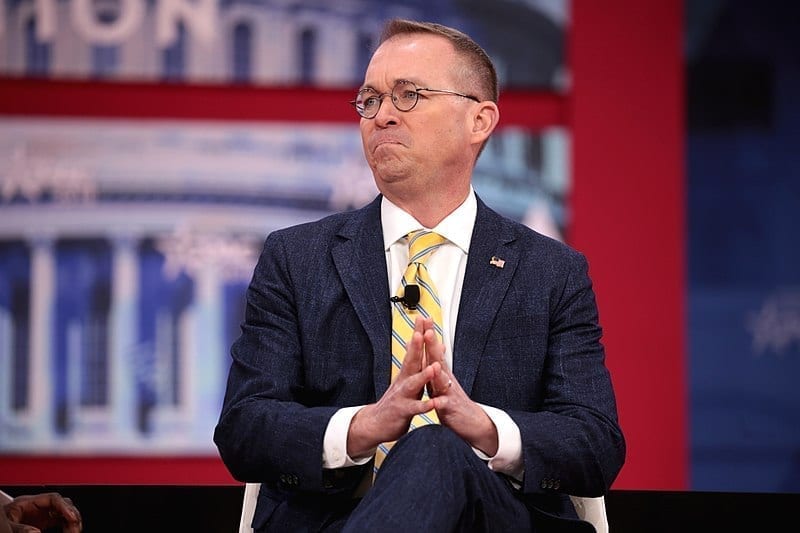On Wednesday, U.S. Consumer Financial Protection chief Mick Mulvaney levied a $200,000 penalty against a payday lender for harassing borrowers.
While the punishment may seem a fitting penalty, Reuters reports that the $200,000 fine falls far short of the $3,000,000 Mulvaney’s predecessor was seeking.
The settlement ended a CFPB investigation into Cash Express LLC, which has hundreds of branches across the southern United States. A bureau report concluded that Cash Express threatened to trash customers’ credit scores if they fell too far behind on payments.
Since Cash Express didn’t actually report delinquent accounts to credit bureaus like Equifax, the CFPB determined the tactic constituted abuse.
Mulvaney, Reuters writes, has softened justice for other predatory lenders, diluting penalties even when violations of law are apparent.
Mulvaney’s defended his decisions by saying the bureau refuses to “shake down the productive sector just because we can.”
But Reuters reports’ make it sound as if Cash Express had no reservations about shaking down its own customers. In addition to triple-digit interest rates, the Tennessee-based business abused its ability to lend against vehicle ownership and anticipated paydays.
The company, said the CFPB report, remains an option for consumers who wish to have a check cashed but don’t have their own bank account. But the bureau says Cash Express flouted the law there, too, with many borrowers failing to realize the company would cut their checks to compensate itself for other outstanding debts.
In one instance, a woman entered a Cash Express outlet holding a sick child. She wanted to cash a $250 paycheck but was terrified to find the amount trimmed down to $30, the company having decided to settle up on an old balance.

Despite Mulvaney’s decision to reduce Cash Express’ penalty liability, the bureau’s director did agree with the investigation. He said Cash Express wrongly garnished paychecks and intimidated customers with made-up claims of credit destruction.
However, Mulvaney opted not to punish Cash Express for collecting expired debt or pressing intimidating collection tactics.
NPR says the bureau’s aimed to weaken lending laws and regulations in other areas, too. Procedural changes may include the revocation of a law ‘designed to protect military service members from getting cheated by shady lending practices.’
In the past, the CFPB has gone after automobile dealers which push overpriced “gap insurance” on veterans and active-duty servicemen. Intended to protect borrowers for the ill effects of depreciation, gap insurance is often available as an addition to traditional premiums. Reputable plans can cost as little as $20 per year, but some dealers push them for upwards of $1500.
The Military Lending Act effectively prevents lenders from rolling over-priced or unnecessary products into certain varieties of loans.
Mulvaney’s taken the stance that the CFPB may not have the legal authority to punish violations of the Military Lending Act.
Sources
CFPB’s softer stance on payday lenders, military member scams
Mulvaney Sides With Payday Lenders Asking Court to Block Restrictions
U.S. consumer watchdog dilutes penalty against payday lender: sources


Join the conversation!